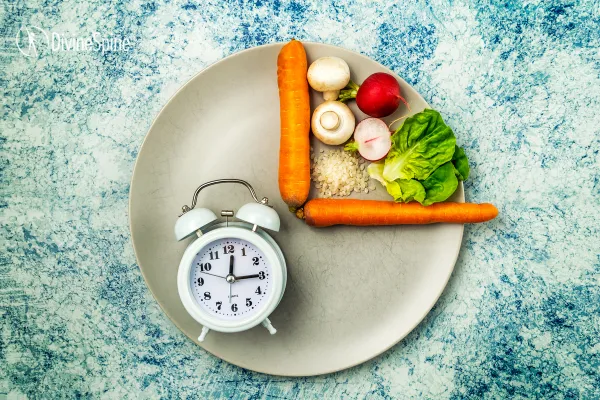Divine Spine and Calgary Chiropractor Dr. Andrea are Revolutionizing Chiropractic Treatments Through Painless and Effective Computerized Adjustments.
Meet Dr. Andrea Holmes

Dr. Andrea Holmes
Chiropractor
Dr. Andrea has been a lifelong advocate of chiropractic care ever since she saw the difference it made in her younger sister’s life when she was just a child.
After her sister was diagnosed with epilepsy and prescribed medication to treat the condition, which turned her into a shell of her former self.
Andrea watched in amazement as chiropractic treatments stopped her sister’s seizures and negated her need for medication.
From that moment on, Andrea knew she wanted to be a chiropractor so she could share the body’s amazing ability to heal itself with as many people as she can.
Client Testimonials
How Divine Spine Can Help
A Divine Spine adjustment is a precise and specific computerized force used to facilitate the body’s correction of nerve interference caused by a misaligned spinal joint.

Dr. Andrea Holmes
Chiropractor

Alicia
Wellness Coordinator

Mackenzie
Wellness Coordinator
In Pain? Nothing Seems to Work?
We have good news. Divine Spine treatments are highly effective in treating Low back pain, Neck pain, Headaches and Sciatica. Contact us today to see how we can help.
Latest Articles On Our Blog
April 16, 2025•2 min read
We talk a lot about food when it comes to health—what to eat, what to avoid, how to balance nutrients. But there’s one simple, powerful element that often gets overlooked: water.
Yep, good old H2O. It may not be flashy, but it’s absolutely essential. In fact, you could be eating the cleanest, most nutrient-packed meals on the planet—but if you’re not drinking enough water, your body can’t fully use those nutrients the way it should.
Water: More Than Just a Thirst Quencher
April 09, 2025•6 min read
Stop the pain! You can feel what you eat in your joints!
In addition to diabetes, cardiovascular disease, high blood pressure and arteriosclerosis, chronic inflammatory joint diseases such as rheumatism, arthritis or osteoarthritis are becoming increasingly common.
April 07, 2025•2 min read
Let’s be real—sugar is everywhere. Even in foods you’d never expect, like tomato sauce, salad dressing, and your “healthy” granola bar. Ever since the low-fat craze took off, sugar’s been sneaking into more and more packaged foods to make up for lost flavor.
But here’s the thing: too much sugar isn’t just about cavities or the occasional sugar crash—it can quietly do a lot more harm than most people realize.
What Happens When You Eat Too Much Sugar?
Latest Articles
On Our Blog

The Power of Nutrition: How Food Affects Your Mood and Mind
Did you know that what you eat doesn't just affect your waistline—it can actually shape your mood, stress levels, and how clearly you think?
Yep, your plate has more power than you might realize. Let’s break down how your food choices are directly linked to your mental health—and how a few simple changes can leave you feeling better, brighter, and more balanced.
Your Gut and Brain Are BFFs
It might sound strange, but your gut and your brain are in constant communication. In fact, your gut is often called your “second brain” because of the way it talks to your central nervous system.
The trillions of bacteria in your gut—your microbiome—don’t just help you digest food. They also play a huge role in regulating your mood. A happy, healthy gut can actually boost your mental well-being. Cool, right?
Nutrients That Boost Your Mood
What you eat feeds more than your hunger—it feeds your feelings. Certain nutrients help support brain function, calm your nervous system, and keep your emotions on an even keel. Here are some key players:
Omega-3s
Found in fatty fish, flax seeds, and walnuts—these healthy fats are brain fuel. They support focus, reduce inflammation, and can even help prevent depression.
Probiotics
Think yogurt, kefir, sauerkraut, and kimchi. These are live, good-for-you bacteria that support your gut—and since about 90% of your serotonin (a.k.a. the happiness hormone) is made in the gut, a thriving microbiome can mean a better mood.
Vitamin B12 and Folate
These are found in leafy greens, legumes, and meat. They're essential for a healthy nervous system and keeping those brain chemicals flowing.
Complex Carbohydrates
Whole grains and legumes help keep blood sugar stable, which means fewer crashes, cravings, and mood swings.
Mood Killers to Watch Out For
While good nutrition can lift you up, some foods can drag you down. Here are a few to keep an eye on:
Sugar
Processed sugar and junk food can mess with your gut bacteria and increase inflammation—both big no-no’s for brain health.
Caffeine
A cup or two is fine, but too much can crank up anxiety and leave you feeling jittery or drained.
Alcohol
It may help you relax in the short term, but over time it can throw off your brain chemistry and worsen low moods.
Eat Well, Feel Well
If you want to feel better mentally, start with what’s on your plate. Focus on fresh, whole foods. Drink plenty of water. Keep your meals balanced and regular. And try to steer clear of overly processed stuff that leaves you feeling foggy or irritable.
Your brain needs just as much care and nourishment as the rest of your body—and food is one of the best tools we have to support it.
Reclaim Your Mental Wellness Through Nutrition
Bottom line: What you eat can shape how you feel. Feed your body right, and your mind will thank you for it.
Want help crafting a feel-good nutrition plan that fits your lifestyle?
Connect with Dr. Andrea E at Divine Spine Calgary SW—your go-to expert for personalized, wellness-based support.
Opening Hours
Monday - 9:00 AM - 7:00 PM
Tuesday - CLOSED
Wednesday - 9:00 AM - 7:00 PM
Thursday - 2:00 PM - 6:00 PM
Friday - CLOSED
Saturday - CLOSED
Sunday - 09:00 AM -1:00 PM
© Copyright 2025 Divine Spine | All Rights Reserved









